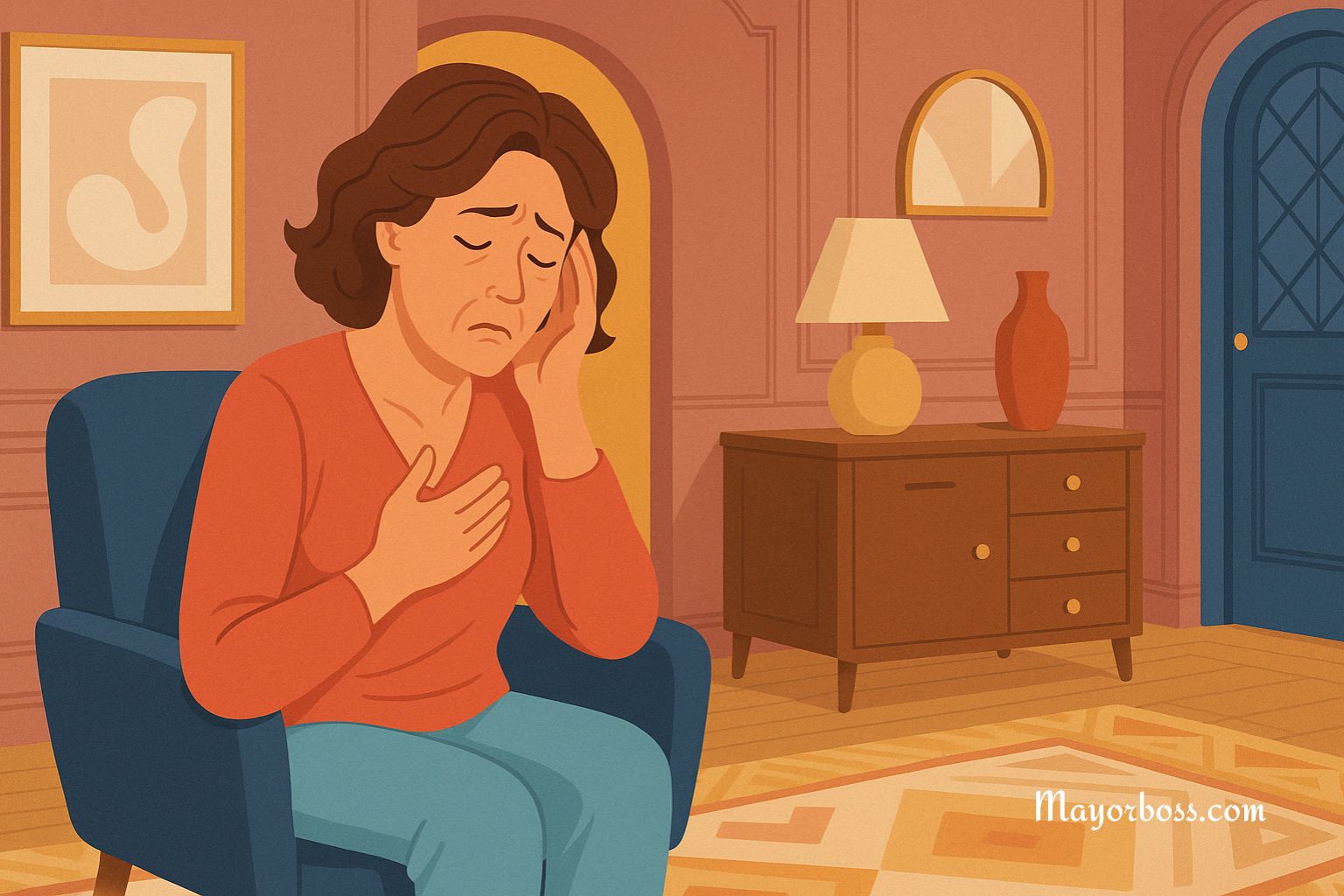10 Physical Symptoms You Didn’t Know Were Caused By Anxiety
Anxiety does not live only in the mind. It can travel through every system in the body, sending out warning signals that often look like other health problems. Because these signs can seem random, many people spend months—or even years—searching for answers from multiple specialists.

Before we begin, remember this rule: unexplained symptoms deserve a full medical check‑up. Your doctor will rule out infection, heart disease, thyroid trouble, and other conditions that mimic stress effects. Once serious illness is off the table, addressing anxiety often reduces the remaining discomfort faster than any pill meant only for body parts.
How anxiety turns thoughts into body sensations
When the brain predicts danger, it fires an alert through the autonomic nervous system. Hormones such as adrenaline and cortisol flood the bloodstream within seconds. Blood shifts toward large muscle groups, breathing speeds up, digestion slows, and sweat glands open wide. These changes are excellent for sprinting away from a hungry tiger. They are less helpful during a staff meeting, a traffic jam, or a quiet night in bed.
If those stress signals keep repeating, muscles, organs, and skin begin to complain. What looks like a stomach bug, heart problem, or skin allergy can, in fact, be the body’s alarm system stuck on high volume.
Below are ten common—but often overlooked—body clues that anxiety may be stirring beneath the surface.
1. Chest tightness that feels like heart trouble
A sudden squeeze in the chest can be frightening. During an anxious moment, stress hormones make chest muscles tense and the heartbeat rise. The mix produces a heavy, pressing feeling that mimics a heart attack.
After emergency conditions are ruled out, notice whether the tightness shows up during worry, deadlines, or crowded places. Simple interventions—slow breathing, shoulder rolls, and grounding exercises—often relax the chest within minutes.
2. Short, shallow breathing
Anxiety tells the body to prepare for action. Breathing gets quick and shallow, so more oxygen is ready for rapid movement. Over time, this unfinished breathing pattern leaves you dizzy, weak, or tingling.
A handy reset is box breathing: inhale for four counts, hold for four, exhale for four, hold for four. Repeat for a minute or two. This easy technique restores carbon dioxide balance and gently informs the nervous system that the threat has passed.
3. Fluttering heartbeat
A heart that skips, races, or flutters is scary but common in anxious people. Adrenaline, the body’s alarm chemical, charges the heart so it can pump harder in an emergency. In quiet daily life, the extra zap feels like a misfire.
Keep a symptom journal. If palpitations line up with stressful calls, social events, or late‑night worrying, anxiety is a likely driver. Beta‑blockers, meditation, and reducing caffeine all reduce the surges.
4. Queasy stomach and bathroom runs
The brain and gut share a nerve superhighway called the vagus nerve. When the brain sounds an anxiety alarm, the gut hears it loud and clear. Muscles in the stomach may slow, leading to nausea, or speed up, causing cramps and urgent trips to the restroom.
Because the gut is packed with its own nerve network, chronic stress can also change the balance of bacteria, producing gas and bloating. Small, bland meals, mindful eating, and probiotics often bring welcome relief.
5. Dizziness or light‑headed spells
Quick breathing lowers carbon dioxide in the blood. That shift, plus tense neck muscles, can make the room spin for a moment. Next time you feel off‑balance, pause. Plant your feet, sip water, and breathe slowly from the diaphragm—belly rising on the inhale, falling on the exhale. As carbon dioxide levels recover, the world steadies.
6. Tingling or numb fingers
Adrenaline pushes blood toward major muscles needed for a “fight or flight.” Hands and feet may feel pins and needles or even go numb for a few minutes.
Massage, gentle hand stretches, and shaking out the wrists help restore fresh blood flow. Over the long term, yoga, regular walks, and therapy lower baseline anxiety and cut back these odd sensations.
7. Jaw pain and morning headaches
Many anxious people clench or grind their teeth—often at night—without noticing. The constant pressure inflames jaw joints and sets off tension headaches that greet you in the morning.
Wear a dentist‑fitted mouth guard, place a warm cloth on the jaw for five minutes before bed, and practice progressive muscle relaxation. Training yourself to keep the tongue resting on the roof of the mouth behind the front teeth also reduces clenching.
8. Itchy skin rashes
Stress chemicals can set off skin nerves and increase histamine release. The result may be hives, itchy patches, or a flare of eczema.
While anti‑itch creams soothe the surface, lowering daily stress trims flare‑ups at their source. Short walks outside, regular sleep hours, and talking with a mental‑health professional reduce the hormonal spark that irritates the skin.
9. Excessive sweating
Sweat glands take orders from the same stress pathway that speeds the heart. During anxiety, they switch on everywhere—palms, face, armpits—preparing the body to cool down fast.
Clinical‑strength antiperspirant helps, yet pairing it with stress‑management tactics—mini breaks, guided imagery, or a short dance session—dries the problem at its root. If sweating stays severe, talk to your doctor about prescription wipes or botulinum injections.
10. Frequent urination
The bladder is sensitive to the same chemical messengers that tighten chest muscles. In stressful moments, those signals tell the bladder to empty so the body can move quickly.
Limiting caffeine, practicing pelvic‑floor relaxation exercises, and building a predictable bathroom schedule all help. Most importantly, tackle the underlying worry with therapy, relaxation training, or medicine so the bladder can relax, too.
